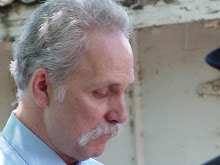The Bardo,translated as The Tibetan Book of the Dead, for centuries it was passed down orally. This ancient text was first put into written form by the legendary Padma Sambhava in the 8th century A.D. Translated, Bardo Thodol means "liberation by hearing on the after death plane". The book acts as a guide for the dead during the state that intervenes death and the next rebirth.
This scripture (The Bardo Thotrol) from Tibetan Buddhism was traditionally read aloud to the dying to help them attain liberation. It guides a person to use the moment of death to recognize the nature of mind and attain liberation.
It teaches that awareness once freed from the body, creates its own reality like that of a dream. This dream projection unfolds in predictable ways in ways both frightening and beautiful. Peaceful and wrathful visions appear, and these visions can be overwhelming. Since the awareness is still in shock of no longer being attached to and shielded by a body, it needs guidance and forewarning so that key decisions that lead to enlightenment are made. The Tibetan Book of the Dead teaches how one can attain heavenly realms by recognizing the enlightened realms as opposed to being drawn into the realms of seduction that pull incorporeal awareness into cyclic suffering.
An interesting sidenote: Some of the concepts in the Tibetan Book of the Dead can be found in The Gospel of Mary Magdalene.
Subscribe to:
Post Comments (Atom)

No comments:
Post a Comment